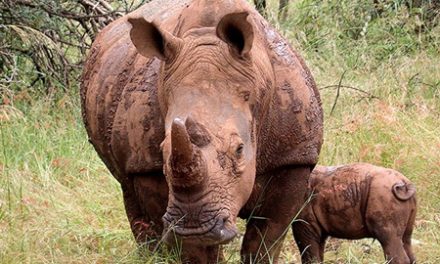
Planting trees to save the planet

Hendrik Vissagie, a Forest Technician in the Directorate of Forestry in Mariental with the staff of the Mariental tree nursery from left; Maria Kaffer, Sarah Iipinge, Nelao Shakondjove and Mathilde Johannes.(Picture by: Hilmah Hashange)
It is estimated that only about 10% of the total land cover in Namibia is defined as forest and although formal forestry in the country started way back in the 20th century, the main focus then, was merely on research for species suitable for timber production. In essence, forest resources suffered significantly as little was done to curb uncontrolled cutting over the past seventy years. According to Hendrik Vissagie, a Forest Technician in the Directorate of Forestry in Mariental, tree planting had very limited development and played an insignificant role in the Namibian economy at the time of Independence. “After Independence, the Directorate of Forestry became the leading public institution responsible for promoting sustainable forest management in the country. However, the sector experienced a few challenges along the way including limited water resources, harsh climatic conditions and the general poor soil conditions which posed serious difficulties to forestry development,” said Vissagie. Despite the challenges, Vissagie said the directorate has managed to assist various communities in the establishment of Orchards and woodlots. “In the Hardap region alone, we have established 8 communal orchards and one woodlots so far with a few more in the process of being established,” noted Vissagie.
Orchards consist of various fruit trees and woodlots are mainly used for domestic purposes such as firewood. According to Vissagie, managing these orchards and woodlots in a sustainable manner requires the input of both the community, the directorate as well as non-governmental organisations. “The directorate is mindful of the many economic uses of trees which include food security, income generation as well as the conservation of water resources, soil and biodiversity. Sustainable forest management also contribute to climate change mitigation as forests play an important role in stabilising greenhouse gas concentrations in the atmosphere,” said Vissagie. According to Vissagie, one of the mandate of the Ministry is forest protection and to fulfill this mandate, the directorate has resorted to planting as many trees as possible. “We want to encourage tree planting not only during National Arbor Day but where ever possible,” said Vissagie. In addition to establishing orchards and woodlots, the Directorate has established tree nurseries in 13 regions. There are currently two nurseries in the Hardap region, one each in Mariental and Rehoboth. The nurseries consist of peach and orange seedlings which are used in communal orchards and other fruit seedlings such as guavas, dates and grapes are sold for N$8 a bag. Other trees are sold at N$ 10 a bag. The seedlings produced are dispatched according to stakeholder needs through selling and donations to the general public, youth groups and other institutions involved in tree planting. “It is very important to plant and maintain trees especially when they are still young until they reach maturity,” Vissagie advised.













































